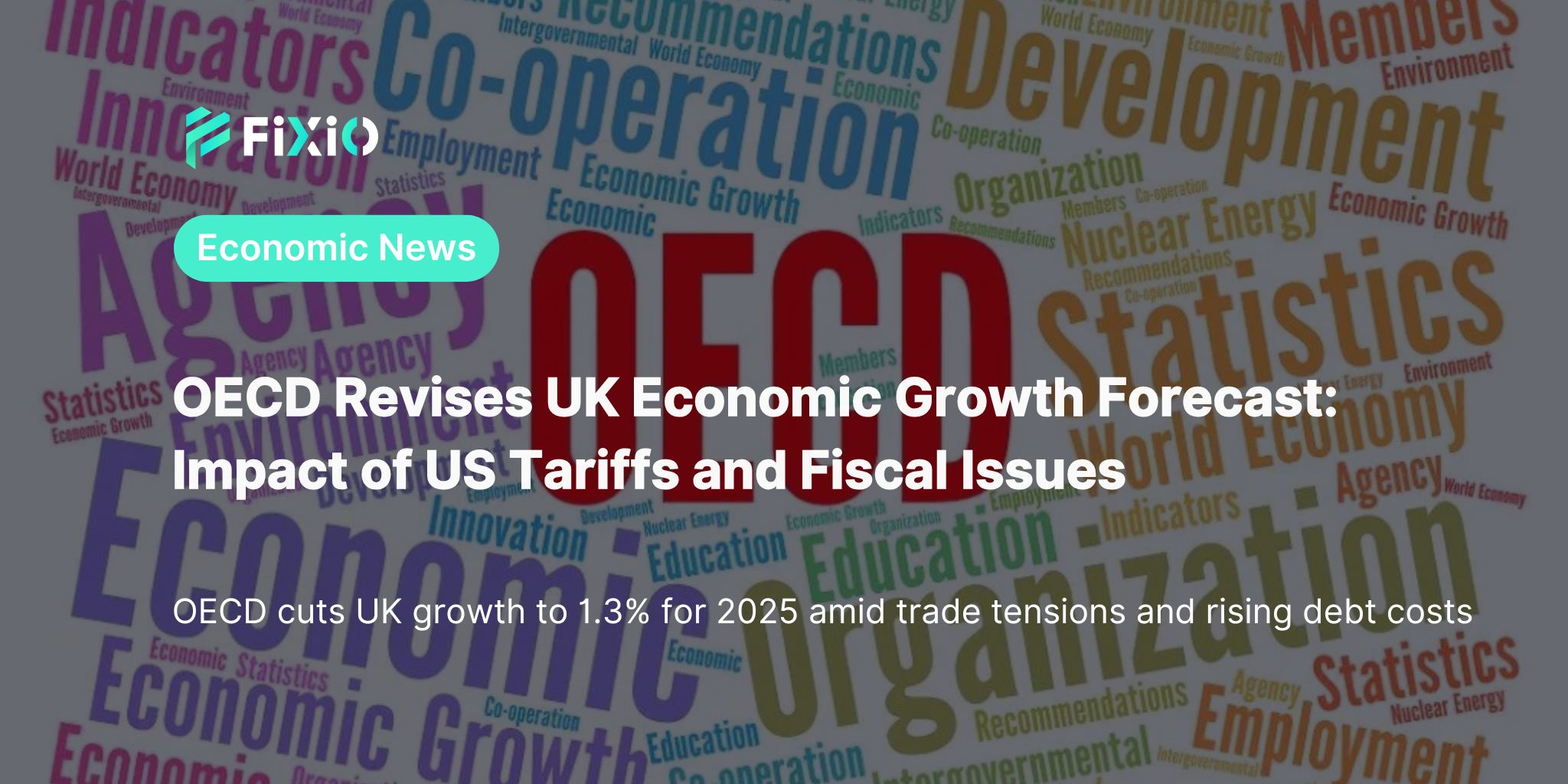
OECD Revises UK Economic Growth Forecast Downward – Impact of US Tariffs and Fiscal Issues
Author: BBC News
The Organization for Economic Co-operation and Development (OECD) has revised the UK's economic growth forecast for this year down to 1.3%, a reduction from its March forecast of 1.4%. The OECD pointed to US tariff barriers and high government debt interest payments as key factors hindering growth in the UK.
The OECD has lowered its global growth forecast due to trade tensions but emphasized that the UK's fiscal policy weakness is particularly constraining its growth. The OECD has called on Chancellor Rachel Reeves to increase tax revenues and reduce spending to address these fiscal challenges.
In response to the OECD's comments, Chancellor Reeves stated, "I am determined to go further and faster to put more money in people's pockets through our plan for change."
Next week, Chancellor Reeves will announce her Spending Review, where she will face tough decisions on departmental budget allocations. The government has already committed billions of pounds to defense, and NHS (National Health Service) investments are expected to be a focus as well.
The OECD forecasts that the UK's economic growth will slow to 1% in 2026, down from the 1.2% previously forecast. The OECD warned that the state of public finances poses a significant downside risk to the UK's economic outlook.
Additionally, the OECD has suggested that Chancellor Reeves should adopt a "balanced approach" of "targeted spending cuts" and tax increases to improve the public finances. This includes closing tax loopholes and revisiting council tax bands based on updated property values.
Global economic growth is expected to slow to a "modest" 2.9%, down from the previous forecast of 3.1%, according to the OECD. The organization cited a significant rise in trade barriers as a major factor, warning that the weakening economic prospects would be felt worldwide.
US President Donald Trump's trade policies have once again come under scrutiny, as the US has raised tariffs, increasing uncertainty around the globe. OECD economist Alvaro Pereira stated, "We are forecasting a downgrade for almost everyone, with much less growth and job creation than we had forecasted in the past."
The OECD has cut the US economic growth forecast for this year from 2.2% to 1.6%, and predicts growth will slow again in 2026. The organization has also warned that inflation risks are rising, with former President Trump’s policies contributing to the concern.
The OECD highlighted that the US is facing rising inflation risks, which could have a significant impact on the economy. On the other hand, Trump has claimed that his trade policies are "explosively growing the US economy." However, the latest official data shows the US economy contracted at an annual rate of 0.2% in the first quarter of this year, marking the first contraction since 2022.
This article provides the latest information on the OECD's global economic outlook and trends in the UK economy. It is important to continue monitoring the impact of fiscal policies and trade barriers across countries.
OECD has revised the UK’s 2025 growth forecast down to 1.3%, citing US tariffs and high debt interest payments. The UK is urged to increase tax revenues and cut spending to address its fiscal challenges.
Superior trade execution & trading conditions with the NDD method.

The online FX industry provides a platform for investors worldwide to engage in the buying and selling.

Subscribe to our daily newsletter and get the best forex trading information and markets status updates
Trade within minutes!
Comment (0)